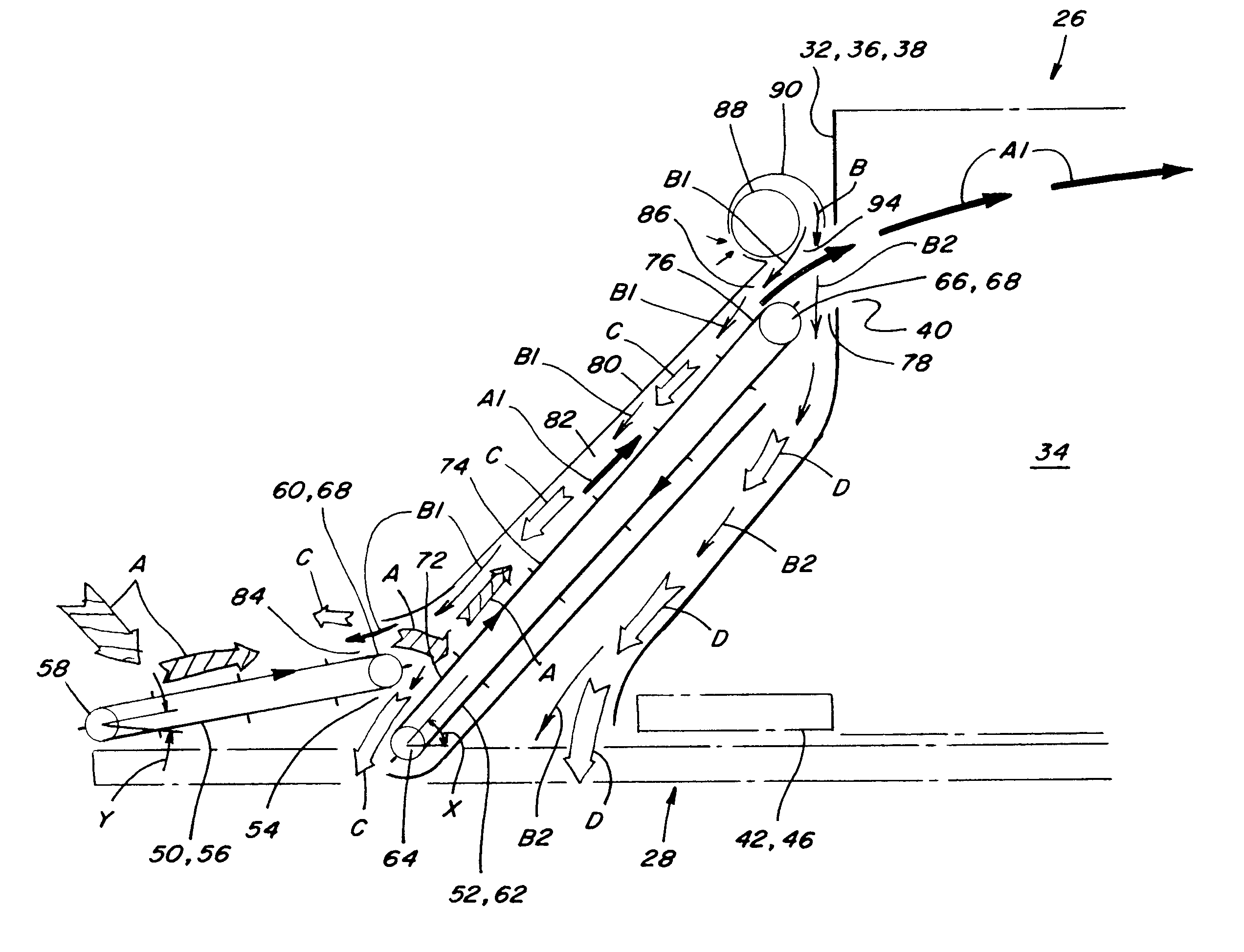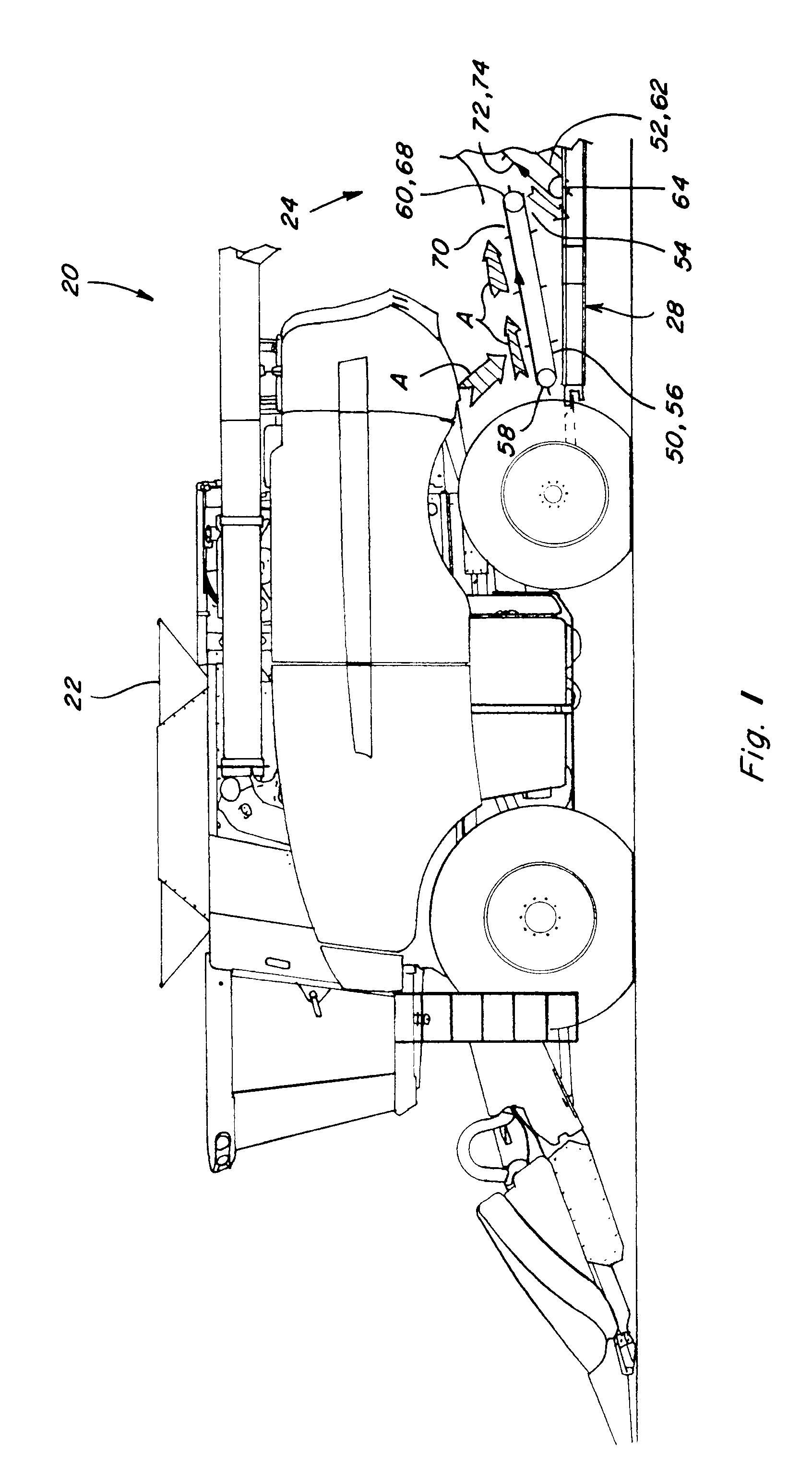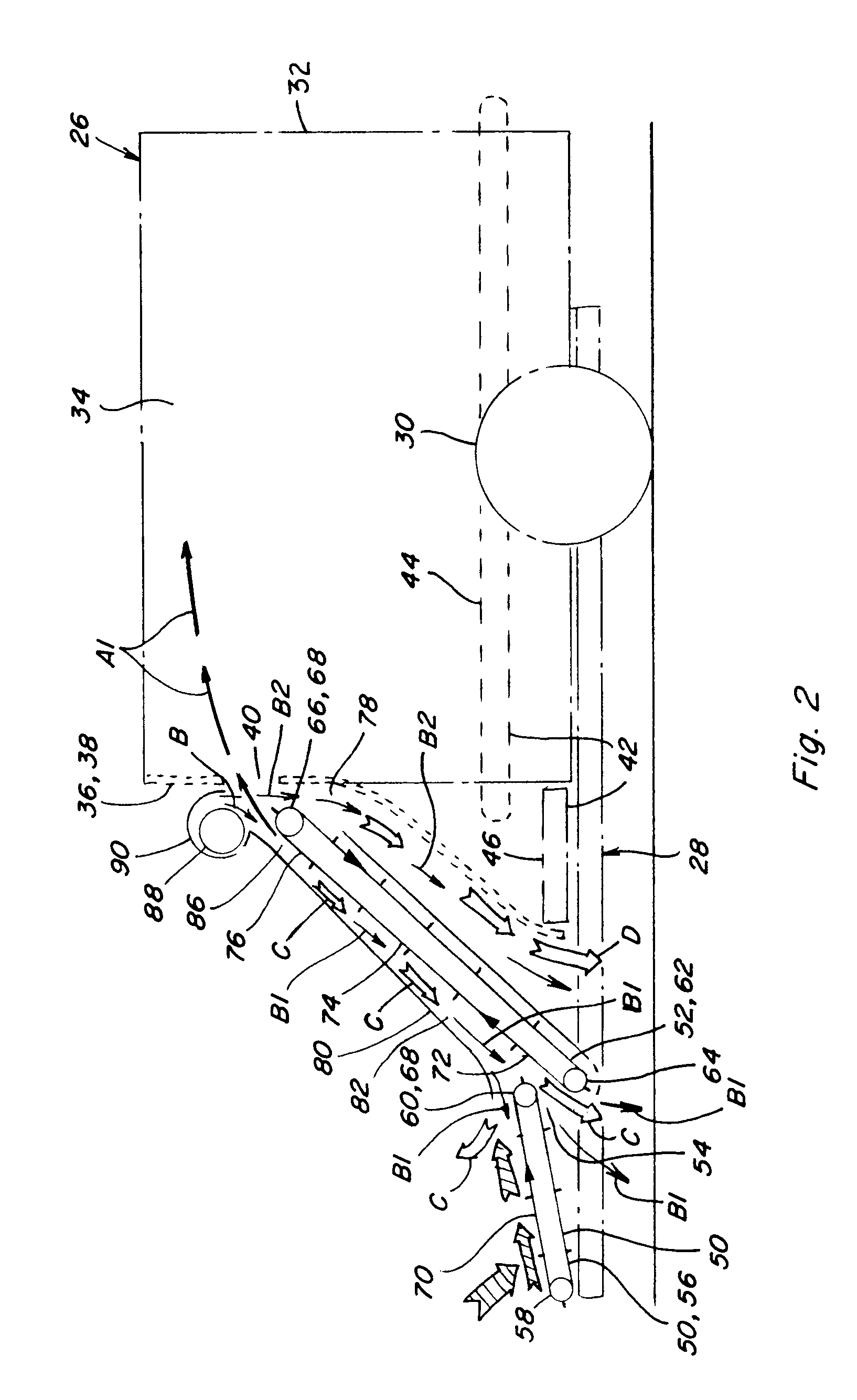Corn cob cleaning system
a cleaning system and corn cob technology, applied in the field of corn cob cleaning system, can solve the problems of difficult to distribute mocs over the swath of cleaning devices, reduce the nutrient content of corn cobs, and blockage of cob collection, so as to facilitate the upward carrying capacity of the conveyor, reduce the angle of inclination of the conveyor, and facilitate the effect of agitation of the residue flow over the cobs
- Summary
- Abstract
- Description
- Claims
- Application Information
AI Technical Summary
Benefits of technology
Problems solved by technology
Method used
Image
Examples
Embodiment Construction
[0034]Referring now the drawings, in FIG. 1, a representative agricultural harvesting machine 20 is shown, which is a combine constructed and operable in the well known manner for harvesting whole ears of corn from corn plants as the combine travels over a field. Combine 20 includes well known apparatus (not shown) that gathers and conveys the ears of corn into a threshing system within the combine which removes most of the husk surrounding the ears, and the corn kernels from cobs of the ears, and directs a flow of the cobs, fragments thereof, and other residue or stover, all as generally denoted by arrow A, from the rear of machine 20. A grain cleaning system within machine 20 can also contribute residue to outward flow A. Also in the well known manner, the corn is collected and conveyed into a clean grain tank 22 on combine 20, or other receiver.
[0035]Referring also to FIGS. 2 through 12, a cob cleaning system 24 is shown, constructed and operable according to the teachings of the...
PUM
 Login to View More
Login to View More Abstract
Description
Claims
Application Information
 Login to View More
Login to View More - R&D
- Intellectual Property
- Life Sciences
- Materials
- Tech Scout
- Unparalleled Data Quality
- Higher Quality Content
- 60% Fewer Hallucinations
Browse by: Latest US Patents, China's latest patents, Technical Efficacy Thesaurus, Application Domain, Technology Topic, Popular Technical Reports.
© 2025 PatSnap. All rights reserved.Legal|Privacy policy|Modern Slavery Act Transparency Statement|Sitemap|About US| Contact US: help@patsnap.com



